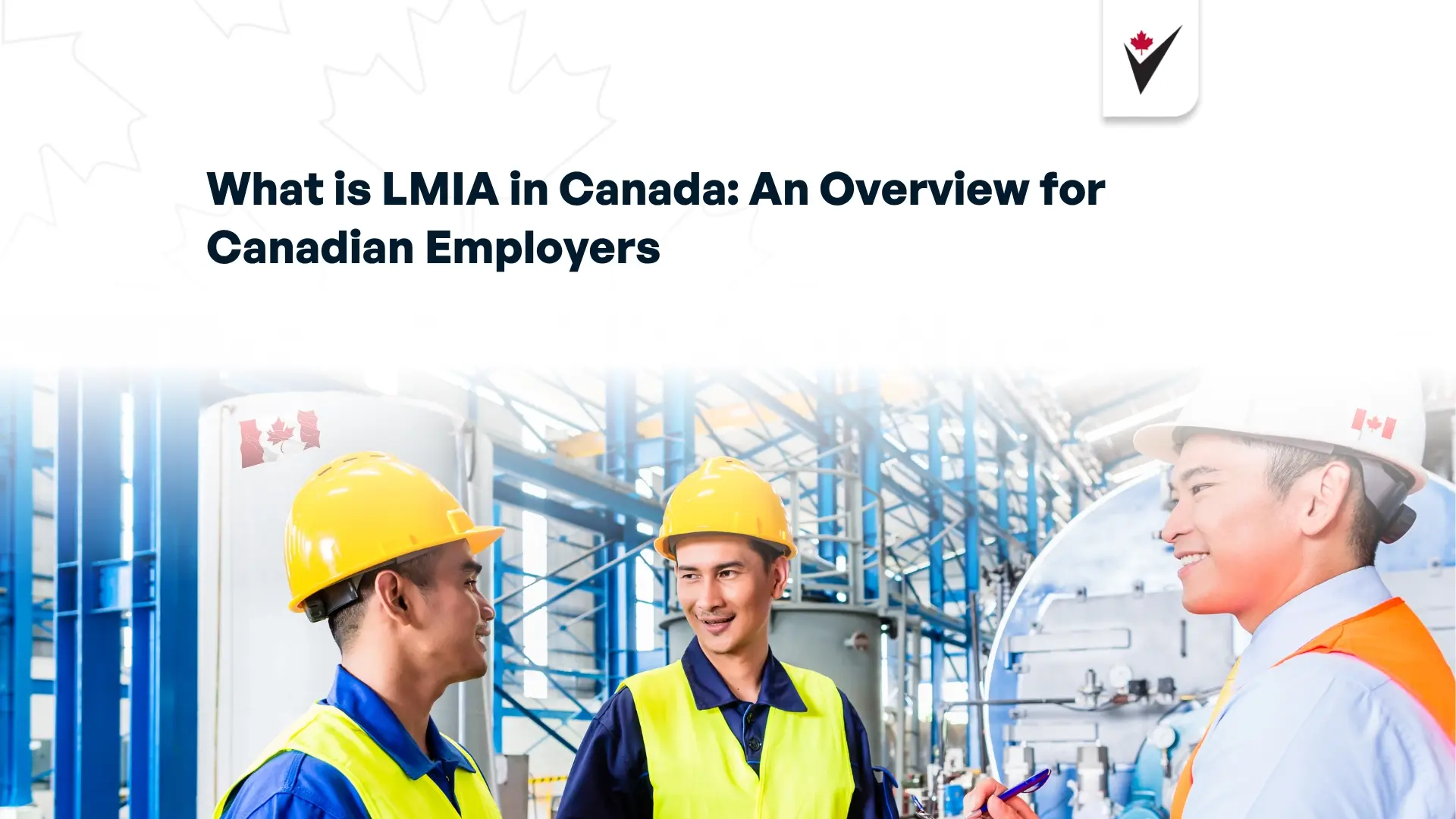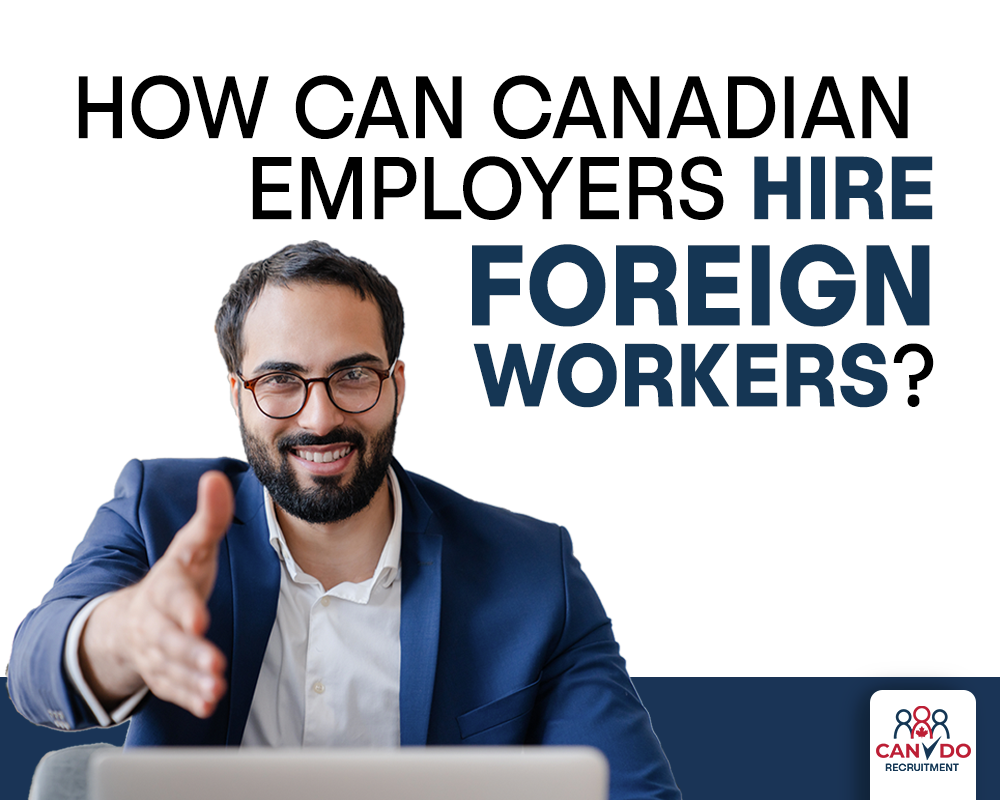If you're a Canadian employer planning to hire a foreign worker, you'll need to navigate the Labour Market Impact Assessment (LMIA) process.
This crucial step helps ensure that hiring a foreign national won’t negatively affect the Canadian labour market, and it's a legal requirement for most positions under the Temporary Foreign Worker Program.
The LMIA process can be complex, with specific job requirements, documentation, timelines, and responsibilities that fall entirely on you as the employer.
In this guide, we’ll explain what an LMIA is, who needs one, what’s required to apply, and how to proceed once your application is approved.
What is a Labour Market Impact Assessment?
A Labour Market Impact Assessment (LMIA) is an official document issued by Employment and Social Development Canada (ESDC) that allows a Canadian employer to hire a temporary foreign worker.
The LMIA assesses whether bringing in a foreign worker will have a positive or neutral impact on the Canadian labour market.
A positive LMIA confirms that there is a legitimate need for a foreign worker and that no qualified Canadian citizens or permanent residents are available to fill the role.
Canadian employers wishing to hire foreign workers must meet specific program requirements before applying, including offering fair wages, suitable working conditions, and conducting proper recruitment efforts.
Who Needs an LMIA in Canada?
Canadian employers need an LMIA if hiring a temporary foreign worker for a position not covered by an LMIA exemption. This includes many roles in industries like construction, caregiving, hospitality, manufacturing, and agriculture, where there is no special agreement or program to bypass the LMIA step.
If you're offering a closed work permit tied to a specific job and location, you'll likely need to apply for an LMIA.
Employer Requirements for an LMIA
Before hiring a foreign worker in Canada, employers must submit an LMIA application to ESDC. To be approved, employers must meet specific criteria that show a legitimate need for a foreign hire and a commitment to protecting the Canadian labour market.
Demonstrate a Genuine Need for a Foreign Worker
Employers must clearly show that hiring a foreign worker is essential to their operations. This includes explaining why the position is necessary and how it supports the business. The LMIA application should outline why the role cannot remain vacant without negatively affecting productivity or service delivery.
No Canadians Available to Do the Job
A key part of the LMIA process is proving that no qualified Canadian citizens or permanent residents can fill the role. Employers must document the steps taken to find a domestic candidate before turning to foreign workers.
Legitimate Job Offer
The job offer must be genuine and align with the employer’s operational needs. It should include a detailed job description, consistent hours, and duties that reflect industry norms. The LMIA application must confirm that the role isn’t being created solely to facilitate a foreign worker’s entry into Canada.
Recruitment Efforts
Before submitting an LMIA application, employers must complete thorough recruitment efforts to attract Canadian talent. These efforts must be well-documented and demonstrate that reasonable attempts were made to hire locally.
Advertising Efforts
Employers must advertise the position across multiple platforms, including the Government of Canada’s Job Bank and other relevant job boards. These advertising efforts must cover an advertising period of at least four consecutive weeks within the three months before submitting the LMIA application. Documentation must show where the job postings were placed, how long they were advertised, and what results came from the campaign.
Fair Wages and Working Conditions
The position must offer competitive wages and meet all federal and provincial standards. This ensures that foreign workers are treated fairly and that hiring practices don’t undercut the Canadian labour market.
Costs of an LMIA
Hiring a foreign worker through the LMIA process requires a CAD 1,000 non-refundable processing fee per position, which should be paid directly to the Canadian government. This fee covers the cost of reviewing the LMIA application and applies whether the outcome is approved, withdrawn, or denied.
By law, the employer is solely responsible for this cost; it can’t be charged to the foreign worker under any circumstances.
Exemptions to LMIA Requirements
Not every job in Canada requires an LMIA.
Thanks to LMIA exemptions under the International Mobility Program (IMP), employers can sometimes hire foreign workers without going through the LMIA process.




